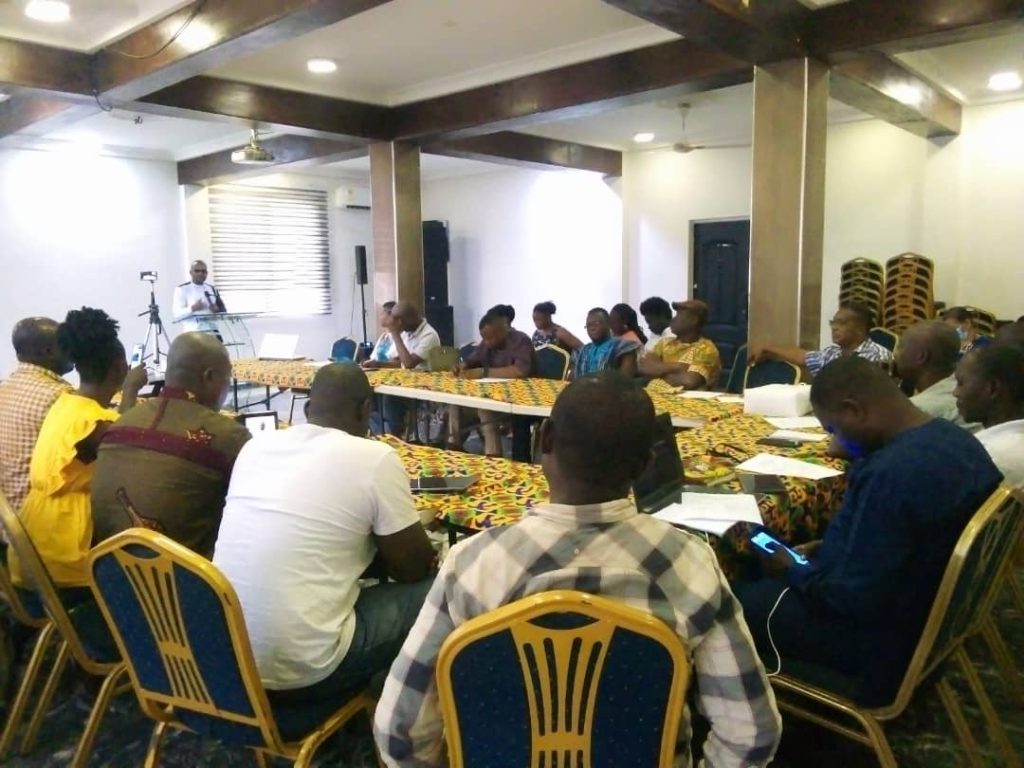By Benjamin A. Commey
Accra, Feb. 14, GNA — The Ghana Community Radio Network (GCRN) has entreated radio practitioners, especially community radio operators, to use the power radio offers to promote peace in their communities and beyond.
Mr Selete Nyomi, Chairman of the Executive Council, Ghana Community Radio Network, who made the call said, radio had the power to bring people together and foster a sense of community irrespective of their location in the world.
“It has the power to bridge cultural and languages barriers, to educate and inform and to promote peace and understanding.”
Mr Nyomi said this at a workshop organised for 25 community radio station operators across the country, to commemorate the 2023 World Radio Day.
The workshop, organised by the Ghana Community Radio Network, with support from the United Nations Educational Scientific and Cultural Organisation (UNESCO), sought to encourage operators of community radio to prioritise peace in the discharge of their duties.
The World Radio Day 2023 was on the theme: “Radio and Peace.”
Mr Nyomi said radio, specifically community radio, had a unique responsibility to use its power to uphold peace in their communities.
He stressed that, in a world where conflicts and divisions were often common, it was more important than ever that radio operators used the power of community radio to promote peace, and bring people together.
“Through our programming, we have created spaces for dialogue and discussions where people come together to share their perspectives and ideas, and find common ground,” he said.
Mr Nyomi, therefore, emphasised the need for responsible journalism, especially as the country prepared for elections in 2024, saying 2023 World Radio Day, offered an opportunity once again for journalists to indicate their resolve to keep the peace and the country intact.
“We need peace to be able to survive in the country no matter what, so, if even we think that things are tough and all that, do we burn the country, do we destroy the country and then after that do what? We go and serve as refugees in some other country where we think we will be treated better than where we are being treated?” He asked.
Mr Nyomi added: “So, it is very important for the media to know that they are the ones who have to create that environment, they have to create that environment and that is responsible journalism. But just being sensational about things without offering a way out or a root of escape is irresponsible journalism.
“We shouldn’t think that just this little time you had the opportunity to operate as a journalist or a media person, the country should burn into ashes.”
Ms Audrey Azoulay, the Director-General of the UNESCO, in a speech read on her behalf by Madam Melody Boateng, National Professional Officer for Natural Science Sector, UNESCO, said, since it was developed about a century ago, radio had proven to be an exceptional means of communication, debate and exchange of ideas.
She noted that radio had allowed humanity to establish an effective system of teaching over the airwaves in many countries, adding that, in sub-Saharan Africa for example, where less than a quarter of the population had access to the Internet, radio had enabled the continuity of learning despite the difficulties.

“Radio is thus very often the medium of last resort,” she added.
She also noted that, aside it being a technical instrument, the space provided by radio space fostered and enriched democratic debate, saying “it is therefore essential to safeguard both the independence and the diversity of what, in many respects, a genuine modern-day agora.”
She called on everyone- listeners, radio broadcasters and audiovisual professionals to make greater use of radio to propagate peace.
World Radio Day is marked annually on February 13, to highlight and preserve the importance of radio and encourage decision makers to provide access to information through radio.
GNA